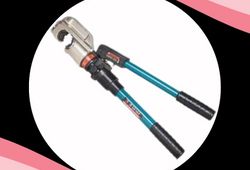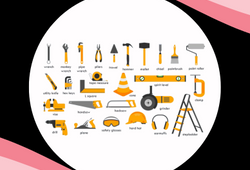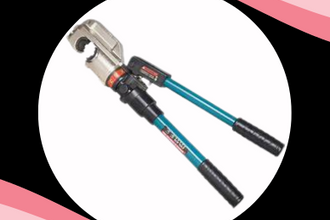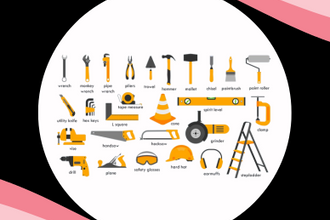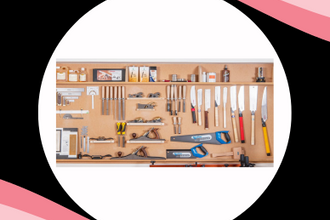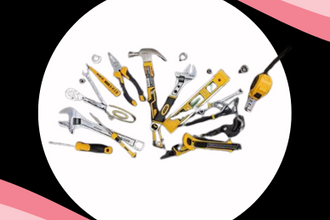
Different Types of Hacksaws and Their Uses
In this guide, you’ll learn about the main types of hacksaws, the blades they use, and how to pick the right one for your task.
What Is a Hacksaw?
A hacksaw is a hand tool for cutting through materials like metal, plastic, and sometimes even wood. It has a metal frame, a sharp blade, and a handle for grip. You move the blade back and forth to cut.
Many people use hacksaws in homes, workshops, garages, and industries. They are handy, light, and require little effort to get the job done.
Why Choosing the Right Hacksaw Matters
Not all hacksaws are the same. Using the wrong one can waste time, damage the material, or even hurt you.
Here’s why the right choice matters:
- You get smooth and clean cuts.
- You use less effort.
- You avoid tool damage or blade breaks.
- You stay safer while working.
Different Types of Hacksaws and Their Uses
Let’s look at the most common types of hacksaws and where each one works best.
1. Full-Sized Hacksaw
This is the most common type.
Use: Best for heavy cutting work.
Works On: Thick metal rods, steel pipes, and hard plastic.
2. Junior Hacksaw
Smaller than the full-sized version.
Use: Good for light-duty cutting.
Works On: Thin metal sheets, soft plastic.
3. Mini Hacksaw
Even smaller, with a short frame and blade.
Use: Perfect for tight or hard-to-reach spaces.
Works On: Light plastic or soft metals in small areas.
4. Power Hacksaw
This one runs with a motor.
Use: For big, tough jobs where hand-cutting is hard.
Works On: Heavy steel pipes and large metal bars.
Types of Hacksaw Blades
A hacksaw is only as good as its blade. Here are the main types of blades you can use:
1. Coarse-Tooth Blade
Use: For cutting soft materials.
Teeth per Inch (TPI): 14–18
Best For: Soft metals, plastic, aluminum.
2. Fine-Tooth Blade
Use: For hard materials.
TPI: 24–32
Best For: Steel, iron, or thick metal sheets.
3. High-Speed Steel (HSS) Blade
Use: Long-lasting and heat-resistant.
Best For: Frequent cutting of hard metals.
4. Bi-Metal Blade
Use: Flexible and strong.
Best For: Heavy-duty jobs and frequent use.
🛠️ Quick Tip:
More teeth = smoother cut.
Fewer teeth = faster cut.
How to Choose the Right Hacksaw
Not sure which one to pick? Use this checklist:
✅ What are you cutting?
Choose a blade that fits the material—metal, plastic, or wood.
✅ How often will you use it?
For everyday work, go for strong frames and long-lasting blades.
✅ Do you need power?
For big jobs, use a power hacksaw. For small tasks, a junior or mini hacksaw works better.
✅ Is the space tight?
Mini hacksaws help when space is limited.
Safety Tips When Using a Hacksaw
Always put safety first. Follow these simple rules:
- Wear gloves and safety glasses.
- Keep the blade tight and clean.
- Cut slowly and with control.
- Keep your hands away from the blade.
- Don’t use too much force.
Final Thoughts
Hacksaws are simple but powerful tools. The key is using the right type with the right blade. Whether you're cutting plastic, soft metal, or thick steel, there's a hacksaw made for the job.
Now that you know the types—Full-Sized, Junior, Mini, and Power hacksaws—and the blade options, you can choose the one that fits your work best.
If you're looking for high-quality hacksaws or blades, Emirates Essential is a trusted hacksaw supplier in Dubai and across the UAE. They offer strong, reliable tools that are perfect for both personal and professional use.
People Also Read
Different Types of Hand Saws and Their Uses
Different Types of Pliers and Their Uses




